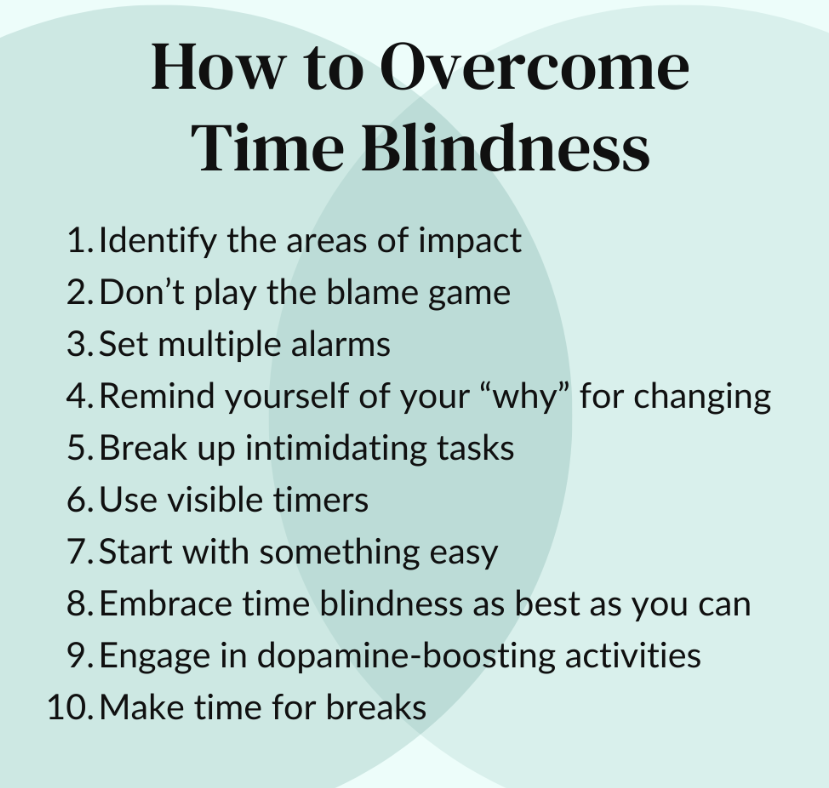BOURSESSENEGAL – Time blindness is a condition where individuals struggle to perceive the passage of time accurately. This can lead to difficulties in planning, organizing, and managing daily tasks. If you or someone you know has experienced challenges related to time management, understanding time blindness can be transformative. In this post, we’ll explore the causes, effects, and practical strategies to overcome time blindness.
What is Time Blindness?
Time blindness refers to the inability to recognize how much time has passed or how much time is left to complete a task. This issue often manifests in various forms, such as losing track of time while engaged in activities or underestimating the duration needed to finish tasks. For many, this leads to chronic lateness, missed deadlines, and a sense of chaos in daily life.
Common Symptoms of Time Blindness
People experiencing time blindness may exhibit several symptoms. These can include:
- Chronic lateness: Frequently arriving late to appointments or meetings.
- Procrastination: Putting off tasks until the last minute.
- Difficulty estimating time: Struggling to gauge how long tasks will take.
- Overcommitment: Taking on more than one can handle without a clear sense of time.
Recognizing these symptoms is the first step toward finding effective solutions.
The Psychological Underpinnings of Time Blindness
Understanding the psychological aspects of time blindness can provide valuable insight into its impact. Many people with time often have underlying conditions, such as ADHD or anxiety. These conditions can distort one’s perception of time, making it harder to focus on deadlines or manage time effectively.
How ADHD Relates to Time Blindness
ADHD (Attention Deficit Hyperactivity Disorder) is one of the most common conditions linked to time blindness. Individuals with ADHD may have difficulty prioritizing tasks or breaking them down into manageable steps. This can lead to feelings of overwhelm and a lack of control over time management.
The Role of Anxiety
Anxiety can also contribute to time blindness. When anxious, individuals may hyper-focus on one task, losing track of time while neglecting others. This creates a cycle of stress and inefficiency.
The Effects of Time Blindness on Daily Life
Time blindness affects various aspects of life. It can impact professional responsibilities, personal relationships, and overall well-being.
Impact on Work Performance
In a professional setting, time can lead to missed deadlines and poor performance. Team members might struggle to collaborate effectively, resulting in frustration for everyone involved. The consequences can include decreased productivity and potential job loss.
Strain on Personal Relationships
On a personal level, time can strain relationships. Friends and family may feel undervalued when someone consistently arrives late or forgets commitments. This can lead to misunderstandings and conflict.
Emotional and Mental Health Effects
The emotional toll of time can be significant. Individuals may experience feelings of guilt, shame, or inadequacy. This can further exacerbate anxiety and stress, creating a challenging cycle to break.
Strategies to Overcome Time Blindness
Fortunately, several effective strategies can help individuals manage time blindness and improve their overall time management skills.
Create a Structured Environment
Establishing a structured environment can make a significant difference. Use planners, calendars, or digital tools to create a clear schedule. Visual aids can help individuals see their commitments and allocate time accordingly.
Break Tasks into Smaller Steps
When faced with large tasks, breaking them down into smaller, manageable steps can reduce overwhelm. This approach helps individuals focus on completing one step at a time, making the task feel less daunting.
Set Timers and Alarms
Using timers and alarms can help individuals stay aware of the passage of time. Set alarms for when to start or stop tasks, allowing for more effective time management. This strategy can create a sense of urgency and keep distractions at bay.
Practice Mindfulness
Mindfulness techniques can enhance awareness of time. Engaging in mindfulness meditation or breathing exercises can improve focus and reduce anxiety, making it easier to stay present and aware of how time is passing.
Seek Professional Help
In some cases, seeking professional help may be beneficial. Therapy or coaching can provide tailored strategies and support to address the underlying issues contributing to time blindness. A professional can help identify personal patterns and develop effective coping mechanisms.
Developing Healthy Time Management Habits
Building healthy time management habits takes time and practice. Here are some additional tips to foster better habits:
Prioritize Tasks
Identifying which tasks are most important can help in managing time more effectively. Use a priority matrix to categorize tasks based on urgency and importance, allowing for better focus on what truly matters.
Use Technology Wisely
While technology can be distracting, it can also serve as a powerful tool for time management. Consider using apps designed for task management or time tracking to stay organized. Many apps offer reminders and visual cues, which can be particularly beneficial for those with time blindness.
Regularly Review Progress
Taking time to review progress weekly can help identify patterns and areas for improvement. Reflecting on what worked and what didn’t can provide insights into better managing time in the future.
Foster Accountability
Sharing goals with friends or family can foster accountability. Consider finding an accountability partner who can help keep you on track. Regular check-ins can motivate individuals to stick to their plans and commitments.
Conclusion: Empower Yourself Against Time Blindness
Time blindness can present significant challenges, but understanding its causes and effects is the first step toward overcoming it. By implementing structured strategies, developing healthy habits, and seeking support when necessary, individuals can reclaim their relationship with time. Remember, overcoming time is a journey that requires patience and persistence. With the right tools and mindset, you can take control of your time and enhance your overall quality of life.
By addressing time blindness head-on, you empower yourself to navigate daily challenges with greater ease. Whether at work or in your personal life, improving your time management skills can lead to enhanced productivity and stronger relationships. Start today and take the first steps toward a more organized and fulfilling life.
REFERENCE : https://www.health.com/



